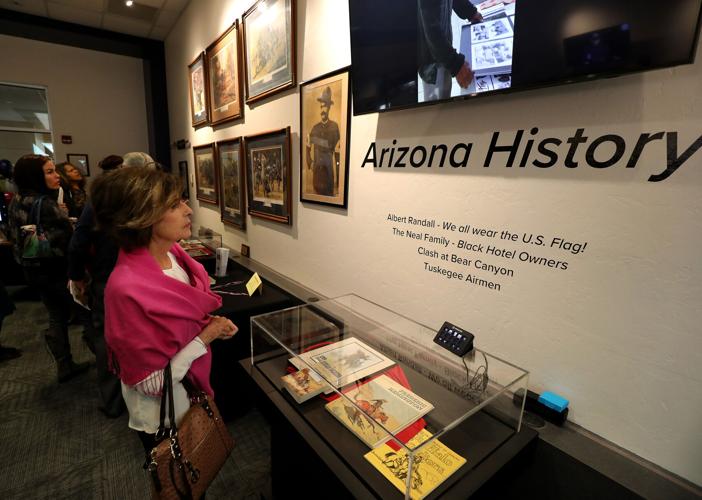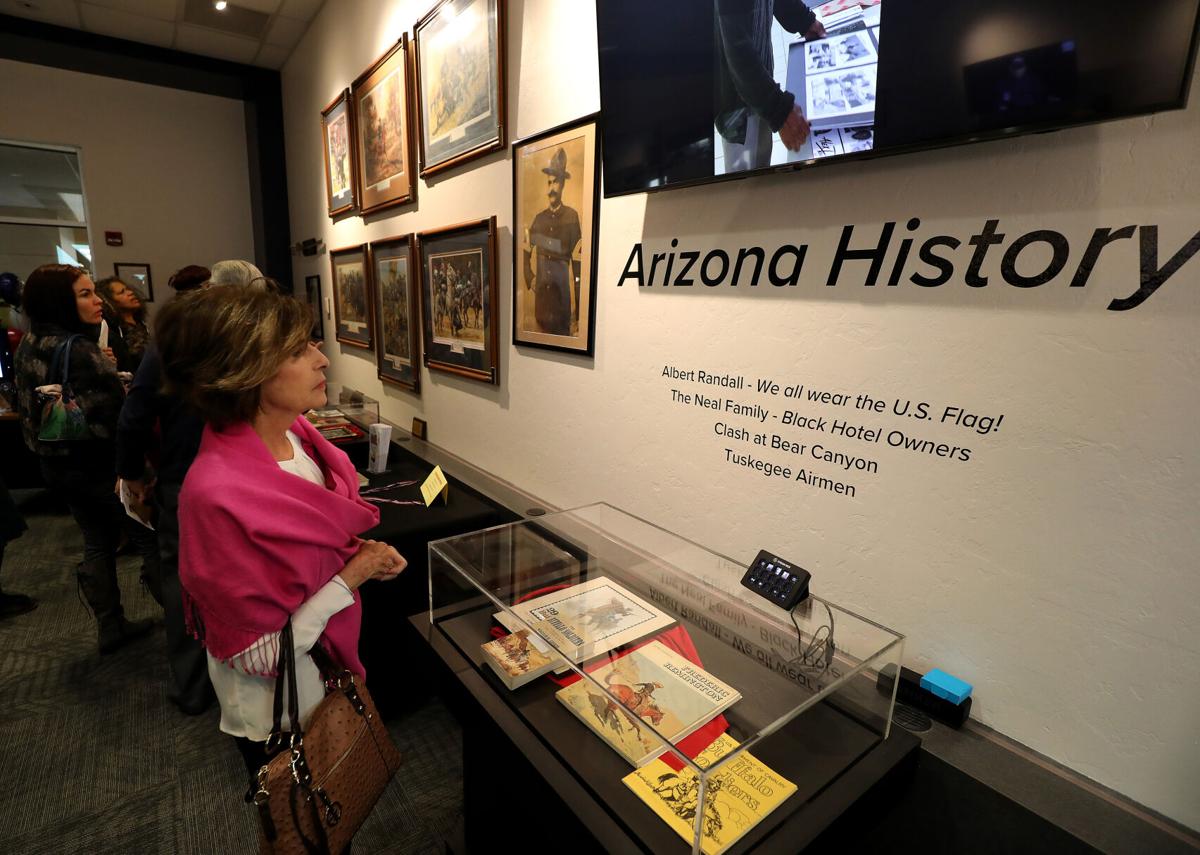A walk through the Student Union Memorial Center at the University of Arizona now offers an opportunity to learn about how African Americans shaped the history of Southern Arizona.
“We are preserving and working hard to make sure that African American history in Southern Arizona — which has actually come from all over the world — is here and that you can come and learn something,” said Beverely Elliott, co-founder and executive director of the museum. “We want people to leave our museum saying, ‘I didn’t know that.’”
One thing new visitors to the African American Museum of Southern Arizona may not know is that Arizona was the last state in the country to make Martin Luther King Jr. Day a state holiday.
Although Monday marks the 30th year Arizonans have celebrated the day for the slain civil rights activist, back in 1992 the holiday was still the center of political tension.
To remind people that Monday’s day off is itself the result of activism, museum workers placed a framed flier from that year calling on the state to make it a holiday in the window display of the museum, which faces one of the Student Union’s main, high-foot traffic corridors.
Elliott, who is a UA alumna and has lived in Arizona for decades, remembers joining protests advocating to make MLK Day a holiday in Arizona, after it became a federal holiday in 1986. “But that’s not why it finally happened,” she said. “It all came down to money.”
It happened because the National Football League pulled out of a deal to hold the 1993 Super Bowl in Phoenix to avoid backlash. After that, voters approved the state holiday in November 1992.
“Things happened in the past, but a lot of things still haven’t changed,” Elliott said. “We want to shine a light on things.”

The African American Museum of Southern Arizona represents nearly two years of work by Beverely Elliott, a graduate of the University of Arizona and the museum's co-founding executive director.
Two years ago, Elliott realized the spotlight on African American history in Southern Arizona was incredibly dim when her young grandson, Jody, had to write a report about an influential Black American. He wanted to write it on someone from Southern Arizona, but couldn’t find much information.
So Elliott and her husband, former UA basketball player Bob Elliott, decided to create the museum. To make it happen, Elliott spent much of the last two years researching local history, building the museum’s collection and assembling a staff of volunteers to help her run the space.
The exhibits cover a variety of people and topics, including: Fred Snowden, head coach of the UA basketball team and first Black person in the country to coach a Division I team; Margaret Campbell, Arizona’s first Black novelist, who lived in an underground home in Tucson for 30 years; the CROWN Act, which recently passed in Tucson and bans discrimination of natural Black hair; and the Buffalo Soldiers of Fort Huachuca.
The museum is also a repository of memories for Arizona’s Black community. So far, Elliott has recorded 15 oral histories with longtime residents — including teachers and veterans — about their experiences living, working and going to school in Southern Arizona.
Collecting memories about how life has and hasn’t changed for Black Arizonans while people with that perspective are still living is one example of how the museum wants to extend its reach into the wider Tucson community.

Beverely Elliott, one of the museum founders, talks about placement of historical paintings with UA facilities management staff at the African American Museum of Southern Arizona inside the University of Arizona Student Union on Oct. 28, 2022.
It’s also got K-12 programming and a possible museum management internship in the works, all in an effort to expose more people to a lesser-known side of Arizona history. The museum is still working on getting more display cases and adding more digital information for users to access via QR codes.
“We’re not just a museum,” Elliott said. “We’re a movement.”
Museum tours are still by appointment only, but will soon be open for self-guided tours from 10 a.m. to 4 p.m. Tuesdays through Saturdays. Contact the museum to set up an appointment by phone at 520-326-1850 or by email at AAMuseumOfSouthernAZ@gmail.com.
The Arizona Daily Star Editorial Team chats with Donna Jackson-Houston, founder and president of the Nogales Buffalo Soldiers Legacy Association. Jackson-Houston is the granddaughter of a buffalo soldier watch to hear her story and learn more about the rich history of these all-Black regiments.







